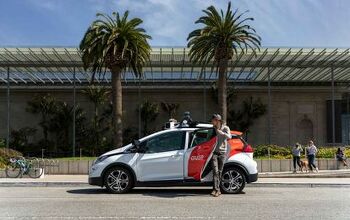Of Penalties And Priorities
Yesterday’s announcement of record fines for Hyundai and Kia regarding their incorrect fuel economy claims is the strongest message yet that the Department of Justice ” firm commitment to safeguarding American consumers, ensuring fairness in every marketplace, protecting the environment, and relentlessly pursuing companies that make misrepresentations and violate the law.” But if your cars kill scores of people due to neglience, you’re getting off easy.
As Ryan Beene of Automotive News reports
“…Hyundai and Kia will pay a $100 million civil penalty, spend $50 million to establish an independent fuel economy certification group and forfeit some 4.75 million greenhouse gas emission credits the companies have banked under the EPA’s tailpipe emissions regulations — estimated to be worth more than $200 million, according to a joint statement by the Justice Department and EPA.”
All totaled, up, that’s about $350 million worth of penalties. GM paid about one-tenth of that in relation to federal safety law violations stemming from the now-infamous Chevrolet Cobalt ignition switch deaths.
The penalties in the Hyundai/Kia case come despite Hyundai’s voluntary reimbursement program for owners of the affected vehicles. Hyundai/Kia aren’t the only ones to have enacted such a program either. Ford set up a similar program for owners of the C-Max and Fusion, but hasn’t been fined by the EPA for similar misstatement of fuel economy numbers.
Maybe we ought to revisit the way we test for fuel economy figures altogether?
More by Derek Kreindler


































Comments
Join the conversation
"... firm commitment to ....." get our mediocre faces on TV and in other media, so that stupid little us can be famous too!!!! And generations of semi literate indoctrinates can cheer for us as we rob people to fund our pensions. Like any good government agency.
What were the problems in Hyundai's methodology for determining MPG that justified the fine? I heard all about Ford using the Fusion's test data to rate the C-Max, but I don't know what Hyundai did wrong. Ford probably wasn't fined because the rules (arguably) allowed using the figures from vehicles with the same weight and powertrain. (Ethically, Ford isn't off the hook because it knew that the C-Max had a significantly higher drag coefficient than the Fusion.) I'm a happy C-Max owner. Ford's checks made 2 of my first 16 car payments. I still get 42-44 MPG.
I use the fuelly.com site for owner fuel mileage experience. It has believable fuel economy ratings.
This is a civil matter, not a government matter. If people were lied to, and had monetary loss due to that lie, they should have sued in civil court. Part of the purpose of the DoJ is to provide a framework in which wrongs can be righted, without lining the pockets of government itself. Here's the way to test emissions and fuel efficiency: let the manufacturers make the numbers. They're not going to fudge numbers that aren't possible because no one will trust them, or they'll get sued. My next vehicle will be purchased on a combination of Fuelly numbers, private reviews and industry reviews.